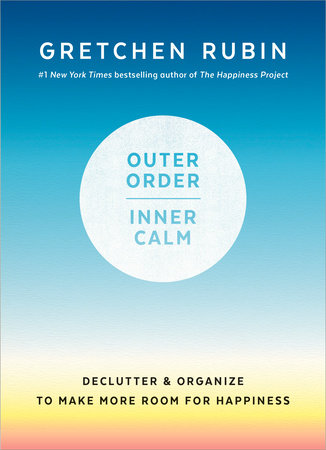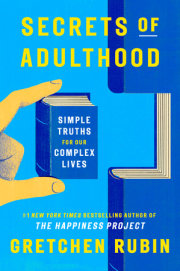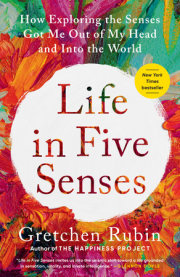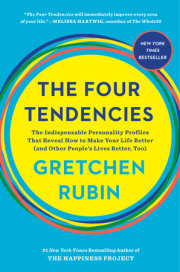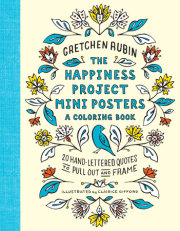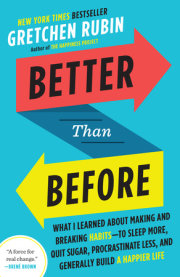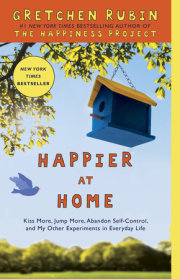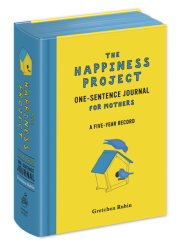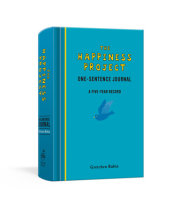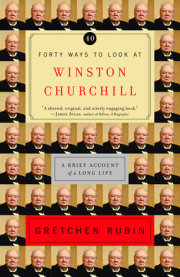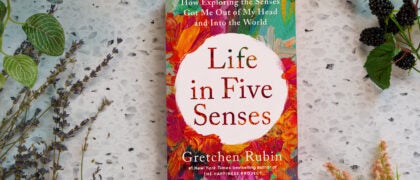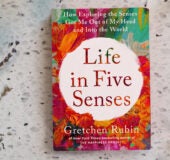In my study of happiness, I’ve realized that for most of us, outer order contributes to inner calm.
More than it should.
In the context of a happy life, a messy desk or a crowded coat closet is a trivial problem—yet getting control of the
stuff of life often makes it easier to feel more in control of our lives generally.
When I’m surrounded by a mess, I feel restless and unsettled. When I clean up that mess, I’m always surprised by the disproportionate energy and cheer I gain, plus I’m able to find my keys. A friend once told me, “I finally cleaned out my fridge and now I know I can switch careers.” I knew
exactly what she meant.
By getting rid of the things I don’t use, don’t need, or don’t love, as well as the things that don’t work, don’t fit, or don’t suit, I free my mind—and my shelves—for what I truly value. And that’s true for most people.
Often, when disorder starts to creep in, I think, I don’t have time to fight my way through all this stuff! I’m too busy to deal with it! But I’ve learned that by managing my possessions, I can improve my emotional attitude, my physical health, my intellectual vigor, and even my social life.
Now, no matter how busy I am, I force myself to take at least a few minutes each day to impose some order. If I’m feeling overwhelmed by multiple writing deadlines, I spend twenty minutes cleaning my office, because I know that clearing my papers clears my mind.
I’ve also found that once I start, it’s easier to keep going. True, sometimes it feels auspicious to do a big clutter-clearing on New Year’s Day, or as spring cleaning, or as pre–Labor Day prep—but
now is always the best time to begin. A friend told me, “I woke up one morning and on impulse decided to tackle my basement. I spent my entire Sunday down there, and I was so pumped by the end that I wanted to keep going all night. I got up early on Monday morning just to sit there and gloat. It gave me such a lift at the start of a tough workweek.”
We want to cherish our possessions and we also want to feel free of them. I want to keep every toy that my children ever loved, but I also want to have plenty of space in our apartment.
With outer order, we achieve that balance.
Outer order offers nine promises:
1 OUTER ORDER SAVES TIME, MONEY, SPACE, ENERGY, AND PATIENCE. I move more smoothly through my days. I don’t waste time searching for things; I don’t struggle to put things away; I don’t have to run out to buy a duplicate of something I already own. It’s easier to clean. I feel less frustrated, less rushed, and less cramped. I’m not frittering my life away on trivial chores and annoyances.
2 OUTER ORDER FOSTERS PEACE WITHIN RELATIONSHIPS. I spend less time nagging at or arguing with other people. I avoid boring questions like “Where’s my passport?” “Where’s the toner?” “Who left the mess in that room?” “Where does this go?”
3 OUTER ORDER CREATES A FEELING OF SANCTUARY. I experience true leisure because I don’t feel pressured to jump up and deal with a mess. Once visual noise is eliminated, I feel more focused and there’s more room in my mind, my schedule, and my space for creative activity. Instead of being sources of stress, my home and my office are places of comfort and energy. I can revel in the beauty of my possessions because I can see and reach everything easily. I have plenty of room for everything that’s important to me. Our physical experience colors our emotional experience, and when my body is in a place that’s orderly, my mind becomes more serene.
4 OUTER ORDER REDUCES GUILT. I feel relieved of guilt about the possessions I’ve never used and the projects I’ve never finished. Because I make better use of what I already own, I can buy less in the future. And I know I’ll leave a lighter burden for others to handle after I’m gone.
5 OUTER ORDER ALLOWS ME TO PROJECT A MORE POSITIVE IDENTITY TO MYSELF AND TO THE WORLD. I feel greater self-possession; I feel more self-assured and capable. Once I’ve cleared away the things I don’t need, use, or love, my surroundings reveal to me, and to others, the things that matter most to me. Careful curation means that my space and my possessions reflect my truest identity.
6 OUTER ORDER RELIEVES ME OF THE FEAR OF PEOPLE’S JUDGMENT. I’m more hospitable because I can invite people over without hours of preparatory cleaning. I don’t panic at the prospect of an unexpected guest or an emergency repair. I’m pleased to show my space to others.
7 OUTER ORDER REFLECTS WHAT’S HAPPENING NOW IN MY LIFE. Because I’ve let go of things that once—but no longer—played an active role in my life, I have more time for what’s important right now. No more giant toys from my children’s babyhood, no more rows of thick law books crowding my office bookshelves. I keep a few precious mementos from the old days, but most of my space is devoted to what’s important now.
8 OUTER ORDER CREATES A SENSE OF POSSIBILITY. When too much stuff piles up, I feel paralyzed. Digging myself out of the mess seems insurmountable, so I stay stuck. When clutter is gone, I have more choices about the future: what to buy, what to do, where and how to live. Because I’m no longer hemmed in by possessions, I feel a sense of renewal.
9 OUTER ORDER SHARPENS MY SENSE OF PURPOSEFULNESS. I know what I have, why I have it, and where it belongs. I make good use of everything I own. There’s nothing random, no uncertainty, no default choices. I’m surrounded by meaningful possessions that are ready for me to use them.
Copyright © 2019 by Gretchen Rubin. All rights reserved. No part of this excerpt may be reproduced or reprinted without permission in writing from the publisher.





